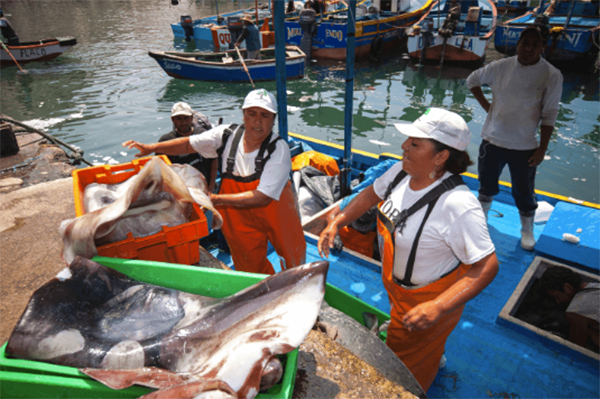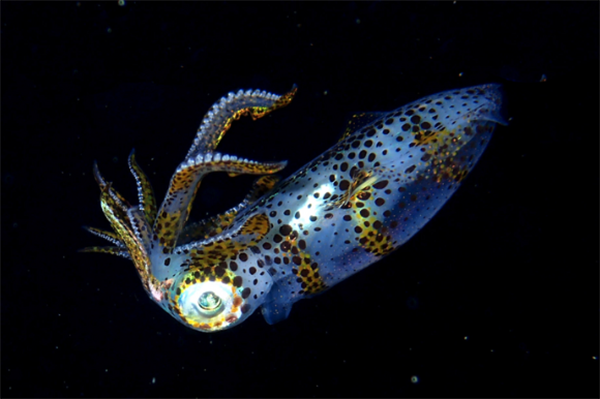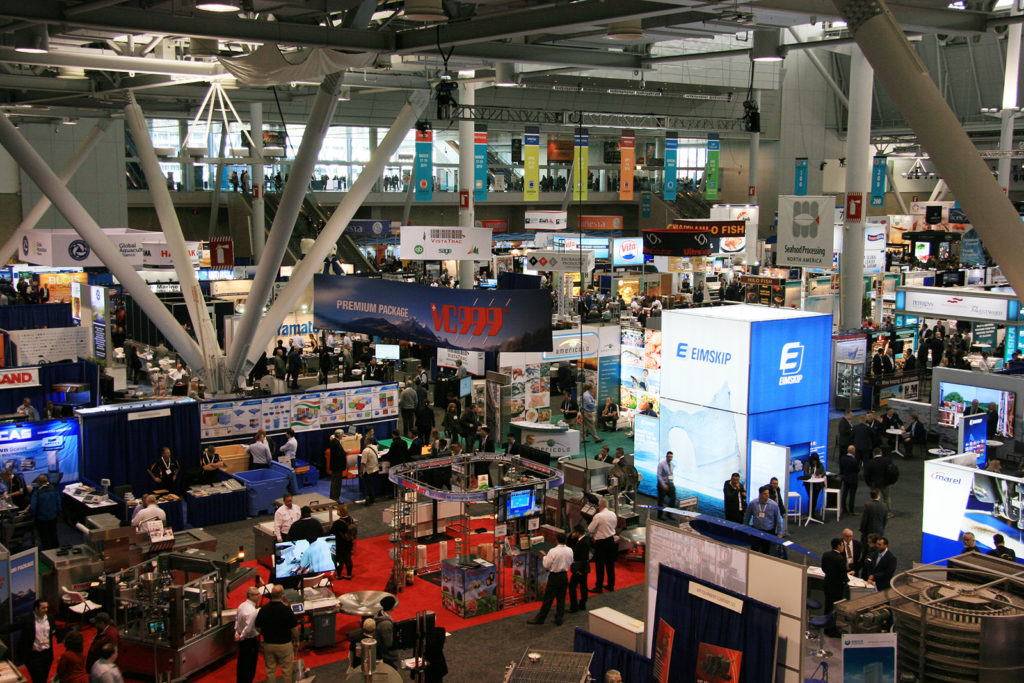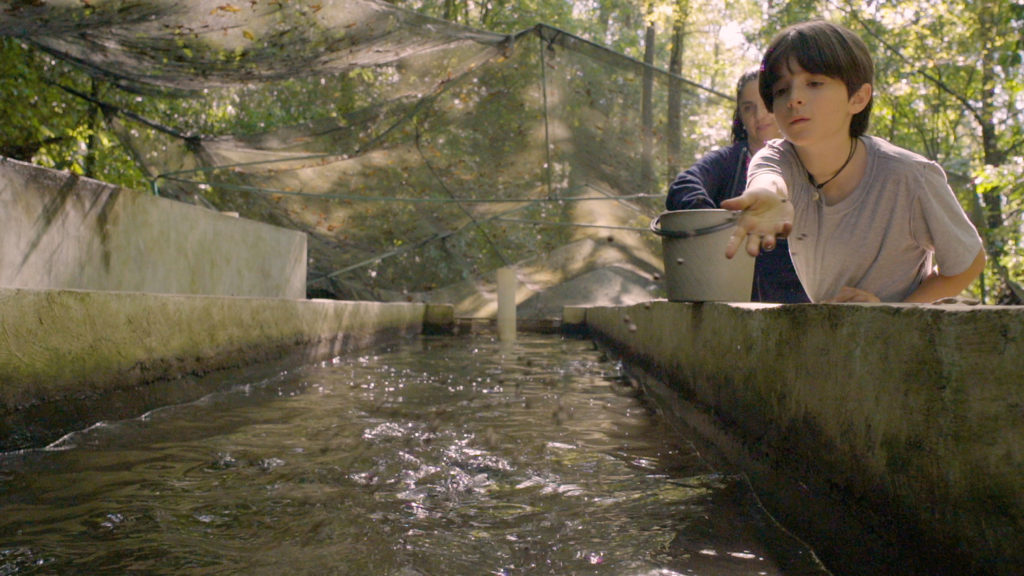Peru’s mahimahi fishery generates more than 40 percent of the global supply by volume

The Peruvian Government last week issued a decree to enable fish-harvester cooperatives to legally register for two significant artisanal fisheries – mahimahi and jumbo flying squid.
The decision removes a barrier for 930 artisanal vessels in fisher organizations to be able to operate legally in Peruvian waters.
“The artisanal sector has long felt neglected by the state, facing endless bureaucratic obstacles,” said Elsa Vega, president of the Peruvian Artisanal Fishing Society (Sonapescal). “The new regulation marks a historic milestone for artisanal fishing, facilitating the completion of the formalization process initiated by many boat owners seven years ago. We now urge the relevant authorities to expedite the process, and invite registered boat owners to submit their applications for final fishing permits promptly.”
Peru’s mahimahi fishery generates more than 40 percent of the global supply by volume. Jumbo flying squid is the world’s largest invertebrate fishery, and Peru’s fishery comprises nearly half of global landings. But these fisheries experienced uncontrolled fleet growth between 2000 and 2015 due to a lack of research, management and political will paired with instability and weak governance, according to the Sustainable Fisheries Partnership (SFP).
“In 2020, Supreme Decree No. 015-2020-PRODUCE mandated the issuance of definitive fishing permits to boat owners involved in cooperative formalization,” said Piero Rojas, legal consultant at SFP. “However, the procedure was not established in the legal framework. But through advocacy, the procedure (decree) was enacted now providing a clear path to obtain the permits and conclude the formalization process.”
The resulting risks, including lost investments and potential labeling of products as illegal, unreported and unregulated (IUU) fishing by importing countries, created an alignment of the supply chain around closing access and granting legal fishing rights to the operating artisanal fleet.
How artisanal fisheries can challenge typical parameters of success
“After nearly 10 years since the initiation of this endeavor, it is evident that, when different stakeholders come together, align their perspectives, and collaborate with end markets, significant and positive transformations can occur,” continued Rojas. “This progress serves as a foundation for the establishment of sustainable management practices in artisanal fisheries.”
Processing plants are organized under Capecal and the Peru Mahi Alliance, and boat owners have a national organization, Sonapescal. Some of these organizations are also members of Calamasur and Coremahi, representing fishery stakeholder interests at the regional level.
“Despite the economic and institutional crises in Peru, the fishing sector has come together to formalize vessels targeting one of the country’s most significant species for human consumption,” said Alfonso Miranda, president of Calamasur. “This collaborative effort will ensure a better future for artisanal fishing and preserve the health of the hydrobiological resource. Jumbo flying squid processors demonstrate the importance of advancing sustainability and obtaining internationally recognized certifications.”
In 2021, with support from SFP and Sociedad Peruana de Derecho Ambiental, the Ministry of Production launched pescaformal.pe, a transparency portal providing training material and expert advice to boat owners and the ability for buyers to verify if vessels are in the process of getting fishing licenses.
Follow the Advocate on Twitter @GSA_Advocate
Now that you've reached the end of the article ...
… please consider supporting GSA’s mission to advance responsible seafood practices through education, advocacy and third-party assurances. The Advocate aims to document the evolution of responsible seafood practices and share the expansive knowledge of our vast network of contributors.
By becoming a Global Seafood Alliance member, you’re ensuring that all of the pre-competitive work we do through member benefits, resources and events can continue. Individual membership costs just $50 a year.
Not a GSA member? Join us.
Author
-
Responsible Seafood Advocate
[103,114,111,46,100,111,111,102,97,101,115,108,97,98,111,108,103,64,114,111,116,105,100,101]
Tagged With
Related Posts

Aquafeeds
Aquaculture Exchange: Andrew Jackson, IFFO
Aquaculture remains dependent on fishmeal and fish oil, crucial marine ingredients in aquafeeds, particularly at key life stages. Andrew Jackson, technical director at IFFO and one of the world’s foremost fishmeal experts, tells the Advocate that the two industries can coexist well into the future if properly managed.

Innovation & Investment
Could squid aquaculture fill the gap from declining cephalopod stocks in Japan?
With declining squid populations, researchers in Japan have developed the first aquaculture system with potential for commercialization.

Intelligence
Canned mahimahi and more bits from Boston
Global Aquaculture Advocate Editor James Wright is covering Seafood Expo North America in Boston, Mass., USA. Check back periodically for updates.

Intelligence
A motive, and a market, for farmed fish in Mexico
Boasting ample areas for aquaculture and a robust domestic demand for seafood – not to mention its close proximity to the U.S. market – a land of opportunity lies in Mexico. Fish farming is primed to meet its potential south of the border.



